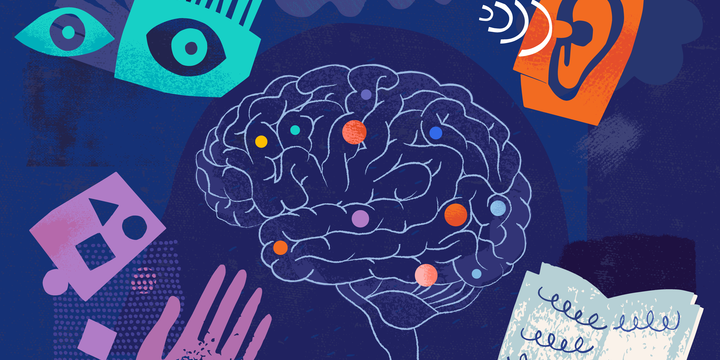Of course, most people have felt socially awkward at some point, which is why this can get tricky. It all comes back to having multiple signs, Michelle Gorenstein-Holtzman, PsyD, a clinical psychologist at the NewYork-Presbyterian Center for Autism and the Developing Brain, tells SELF. “You’re not looking for one behavior…you’re looking for symptoms across settings and different domains, and for it to really impact somebody’s functioning,” she explains. For Andreas, random chit-chat, in particular, is agonizing because she’s not really interested in interacting with strangers and is often hyper-focused on how she’s being perceived, so it can cause her to ruminate about what she said long after the conversation is concluded.2. You’re extremely invested in your interests.Having a little hobby is a good thing, but people with autism tend to get really, really wrapped up in them. Maybe you deep-dive into niche topics—say, the latest cult docuseries on Netflix or train sets—and then that’s all you want to talk about or do, Dr. Gorenstein-Holtzman says. “It can become their entire world,” she says. When she was a kid, Andreas once became laser-focused on musical instruments, then mastered photography a few months later. When she got older, she went all in on psychology, ultimately making it a career. “I just couldn’t get enough of it. I’m really obsessive about my interests and this became the new thing,” she says.Having an intense passion for something can be rewarding and exciting, but for some people with autism, it can get in the way of responsibilities, like family or work—it’s estimated that half of adults with the disorder struggle with employment. If you’re on the milder side of the spectrum, your interests may still impact daily functioning, just to a lesser extent. For example, if you’re majorly into photography, you might have trouble talking about something other than developing film when you’re out to lunch with friends, which could impact your ability to connect, Dr. Quaratella says. For others, losing a special interest can be disabling. “If you told me, ‘Hey go a day and don’t talk about autism,’ I literally wouldn’t know what to do with myself,” Andreas says.3. You’re super sensitive to lights, sounds, textures, and smells.When you have autism, your brain processes sensory stimuli differently—or perhaps more strongly—than other people. This might mean that clothing labels are unbearably itchy, bright, flickering lights are distressing, or a waft of someone’s cheap perfume makes you want to cry. For Andreas, a toddler running around screaming with delight, as cute as they might be, is almost unbearable. “A little sensory input can have a big feeling internally,” Dr. Gorenstein-Holtzman says. You may, on the other hand, seek out certain sensations like the vibrations from loud music or the pressure of a weighted blanket because they makes you feel calm and balanced.Again, there’s a wide range of experiences here: Visceral reactions to stimuli have the potential to derail your focus on other things, like school or work, or it may take you hours to get ready if you’re agitated by the feeling of your wool sweater. Studies suggest that this symptom tends to go hand-in-hand with a lack of socializing: People who have intense reactions to these things tend to retreat and want to be alone more often.4. You require routine and predictability.With ASD, you might feel very specific or rigid about how you want your day (or life!) to go and get stressed if that suddenly changes, says Dr. Quaratella. Maybe you get a new roommate, or last-minute events derail your routine, stress you out, and prevent you from going about your day, Dr. Quaratella says. Alternatively, you might feel tense if someone rearranges a few items in your fridge or puts your coffee mugs in a new cabinet, Dr. Gorenstein-Holtzman points out. Andreas feels better when her days look similar, and she tends to eat the same thing for breakfast every morning. “It feels very comfortable to know what’s coming next,” she says.
